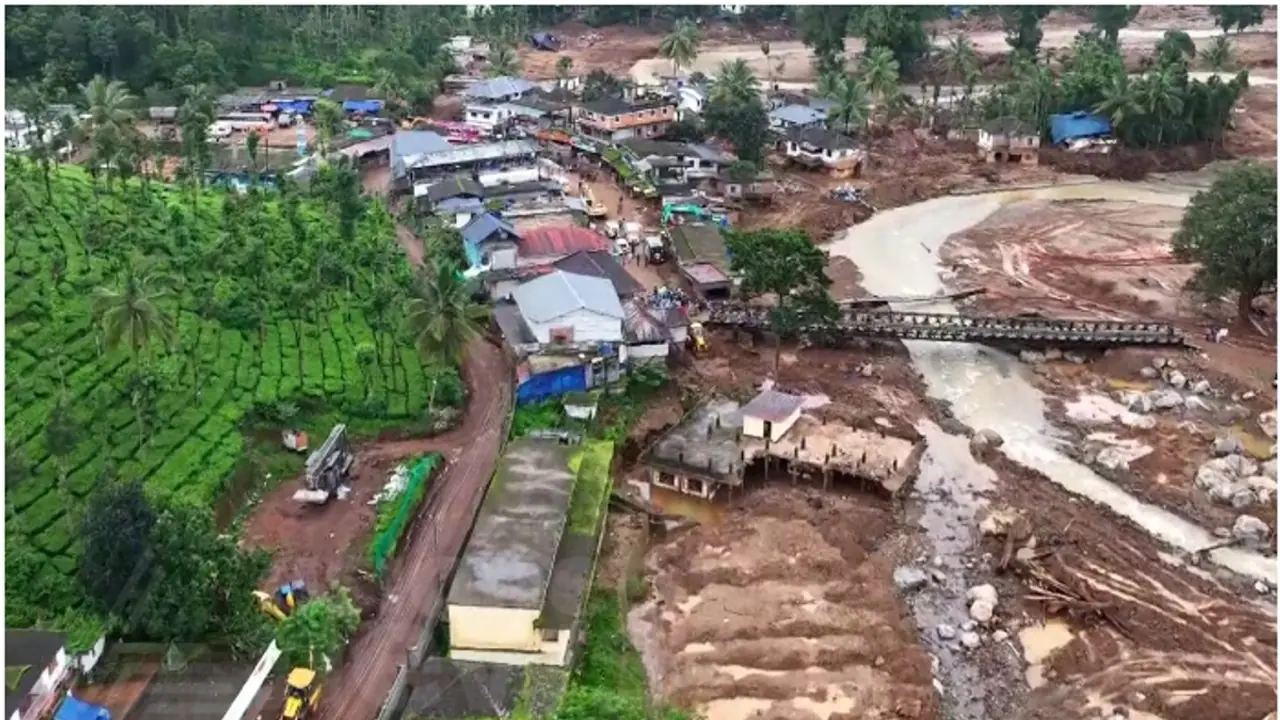The rainfall is predicted to intensify to very heavy levels, between 12 cm and 20 cm, in Kozhikode and Wayanad on Thursday. The alert highlights the potential for further disruption in an area already reeling from recent disasters.
The India Meteorological Department (IMD) on Wednesday (August 14) issued an 'orange' alert for Kerala's Wayanad district, highlighting concerns over heavy rainfall in the region. This comes in the wake of devastating landslides on July 30 that claimed over 400 lives. According to the IMD, heavy rainfall ranging from 7 cm to 11 cm is expected in parts of Ernakulam, Thrissur, and Kannur on Wednesday.

The rainfall is predicted to intensify to very heavy levels, between 12 cm and 20 cm, in Kozhikode and Wayanad on Thursday. The alert highlights the potential for further disruption in an area already reeling from recent disasters.
Independence Day 2024 Gallantry Awards: Check full list of winners HERE
In addition to the orange alert for Wayanad, the IMD has also issued a 'red' alert for Lakshadweep, predicting extremely heavy rainfall of more than 20 cm in isolated areas on Wednesday. This indicates severe weather conditions that could lead to significant impacts.
A recent global study has linked the Wayanad landslides to an intense burst of rainfall exacerbated by climate change. The team of 24 researchers from India, Sweden, the US, and the UK found that more than 140 mm of rainfall fell in just one day, on already saturated soils from two months of monsoon rains. This excessive rainfall triggered catastrophic landslides and flooding, worsened by ongoing environmental challenges.
Researchers have attributed the severity of the landslides to several factors, including deforestation, mining in sensitive areas, and prolonged rainfall followed by intense precipitation. These elements combined to create a particularly vulnerable situation in Wayanad, amplifying the impact of the heavy rains.
Amid protests, Silchar Medical College cancels controversial safety advisory for women doctors
The Kerala government had previously criticized the IMD for not adequately predicting the extreme weather that led to the July 30 landslides. In response, IMD Chief Mrutyunjay Mohapatra said that the department had issued timely forecasts. On July 25, the IMD had released a long-range forecast predicting significant rainfall along the west coast and central parts of India. The warning was initially yellow, upgraded to orange on July 29, and a red alert was issued early on July 30, indicating the expected severe weather.
